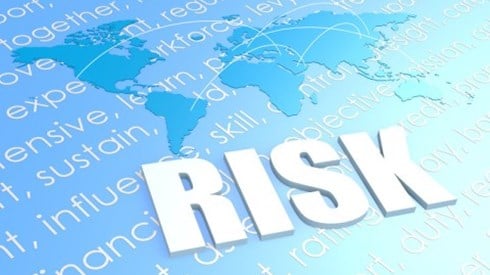Climate Change, Technology, Other Sources Pose Host of Emerging Risks

June 27, 2022

Crypto assets and quantum computing are creating new risks in the global financial system, while climate change is producing an entirely new set of emerging risks, according to a new report.
The 10th edition of Swiss Re's SONAR report examines a variety of emerging risks across technological, economic, social, and environmental areas.
The June 16, 2022, report, titled Swiss Re SONAR: New Emerging Risk Insights, notes that in today's highly technology-dependent financial system, cryptocurrencies such as Bitcoin and ether have emerged as potential challengers to conventional currencies. At the same time, additional forms of crypto assets have been developed, such as tokens allowing individuals to purchase digital representations of real assets such as works of art or real estate.
Those tokens can be traded and grant their owner access to assets, products, or services, Swiss Re says. But the fluid ownership, taxation, regulatory issues, and other risks related to these new asset classes create fresh challenges for insurers. For example, Swiss Re asks whether some crypto assets are implicitly covered by existing property or cyber policies.
The Swiss Re report adds that the security of the new digital financial economy is also facing new risks. The rise of quantum computing, for example, presents a new generation of computers that are on the verge of accomplishing tasks far beyond those possible with existing machines. These new technologies offer a host of other potential benefits, including improved weather modeling, advanced medical research capabilities, and financial analysis, Swiss Re says.
But, as these new computing systems gain maturity, they can also threaten existing information technology security protocols, Swiss Re says, potentially being able to hack the encryption keys used in online communication and data transfer.
"New technology can disrupt traditional processes, long-standing value chains, and entire industries," the report says. "With that, workplace processes, human behaviors, and skills requirements also need to change. This applies as much to insurers and insureds."
The report notes that when looking at new technology, insurers and reinsurers also have to consider the impacts on existing coverages, as well as opportunities that technology might offer for new risk transfer products.
"Ideally, the benefits from technological advances prevail over unintended negative effects," the report says. "Often, this is the case. Sometimes though, technological advances and their disruptive impacts are overhyped. And sometimes, the benefits and risks of new technologies do not play out synchronously."
In the case of quantum computing, expectations about the potential benefits are high, Swiss Re says. Yet it's possible that cyber-threat scenarios resulting from the technological advance become a concern to the insurance industry before any quantum computing applications can be applied to business operations.
Climate change is both a key emerging risk trend and one that is here to stay, Swiss Re says. It's reshaping the economic landscape by driving price changes, structural shifts, and new regulations.
At the same time, climate change is also influencing the exposure to other risks, the report says. Among them are loss accumulations resulting from thawing permafrost, risks from transmittable diseases and possible future pandemics, and risks from invasive species.
The Swiss Re report suggests that meeting the worldwide goal of net-zero emissions by 2050 will require managing potential hurdles, risks, and unintended consequences. Decarbonization is easier for some industries than others, the report notes, and the societal effects of the transition including growing inequalities and changing opportunities for workforces and consumers also must be considered.
"Some transition risks will be mitigated by technological advances, but novel technology can in turn also create new risks," Swiss Re says. "The insurance industry has a vital role to play in the transition, by spreading best practice, providing specialist risk transfer knowledge and capacity to partners in other sectors of the economy, and as an enabler for investment in the innovation necessary to make carbon reduction and removal a reality."
The report also addresses the increase in global uncertainty and risk awareness. The Russia-Ukraine war hit markets already under stress from the COVID-19 pandemic, the report says, affecting supply chains, trade relations, and energy markets. The impact has been seen in higher prices for key commodities, while port blockages in Ukraine interrupting grain exports from one of the world's largest wheat producers threaten global food supplies, increasing food security concerns in various regions of the world, the Swiss Re report says.
"In parallel, new geopolitical risks and pandemic-related supply chain disruptions are affecting energy markets," Swiss Re says. "While sanctions drive up oil and gas prices, the transition to new and greener energy cannot easily keep pace, as electrification of mobility (e.g., largely depending on batteries) is facing shortages of relevant minerals and other raw materials. These developments create economic stresses for a number of world regions, and they could cause social unrest."
The Swiss Re report says that the accumulation of risk factors has raised society's risk awareness.
"Current global challenges do not only highlight rational acknowledgment of risk accumulation but also bring out irrational beliefs, threats, and trust issues," the report says. "Trust between large segments of the population and government officials as well as academic experts has been challenged by the pandemic, and the possibility exists that conspiracy theories and alternative views on health and other behaviors will negatively impact societal resilience more broadly."
Swiss Re notes the importance of considering emerging risks. If not addressed, they can impair lives, cause damage, and result in unexpected costs for both individuals and businesses, the report says, including the costs to insurers through claims, financial losses, and operational challenges.
June 27, 2022






